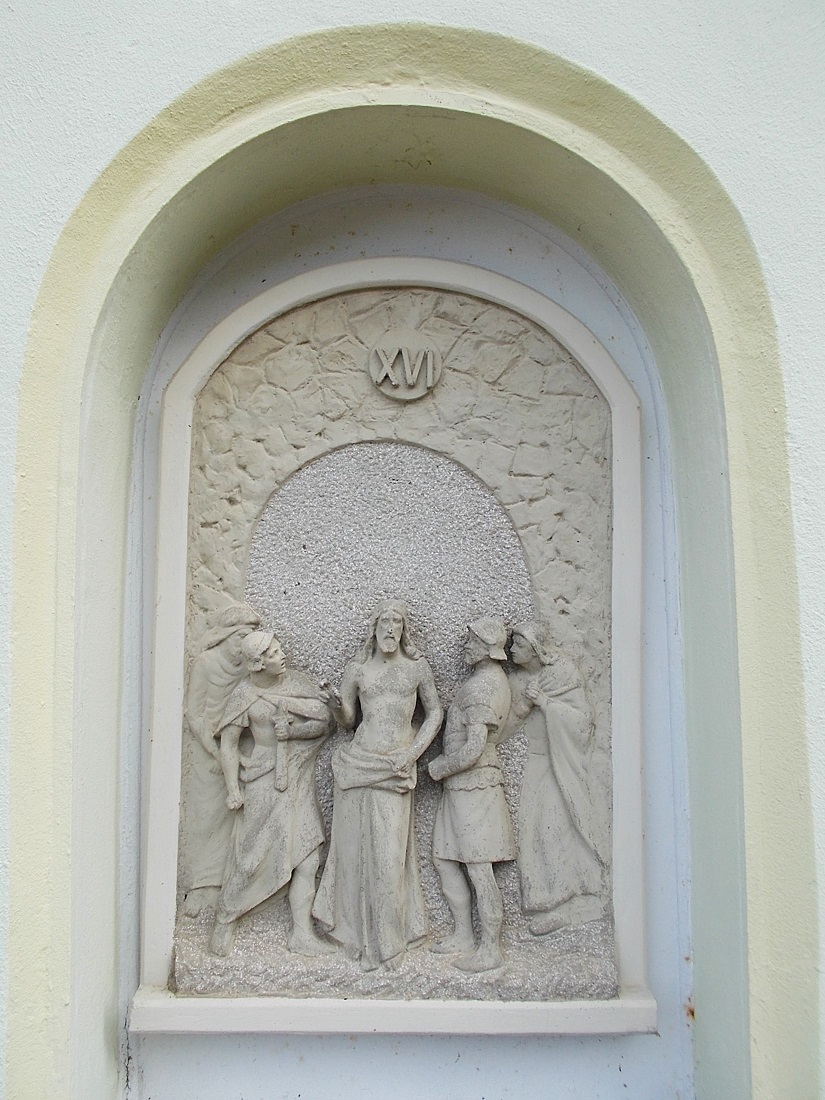Many people claim that this proves the Sabbath was changed using this verse..
Revelation 1:10
I was in the Spirit on the Lord's day, and heard behind me a great voice, as of a trumpet,
What is the Lord's day? Lets look in the Bible:
The "Lord's day" according to scripture, is the 7th day, the sabbath day of the Lord.
Genesis 2:1-3,4 - 'the seventh day', 'God', 'day', 'the LORD God' [… God [the LORD] … day …]
Exodus 16:23 - "the LORD", "to morrow [the seventh day] is the rest of the holy sabbath unto the LORD' [... the LORD ... [day] ...]
Exodus 16:25 - 'to day [the seventh day]; for to day is a sabbath unto the LORD: to day' [... the LORD ... day]
Exodus 20:8-11 - 'the sabbath day', 'the seventh day is the sabbath of the LORD thy God', 'sabbath day' [... the LORD ... day ...]
Exodus 31:15 - 'the seventh is the sabbath of rest, holy to the LORD ... the sabbath day' [... the LORD ... day]
Exodus 35:2,3 - 'the seventh day there shall be to you an holy day, a sabbath of rest to the LORD', 'the sabbath day' [… the LORD … day …]
Leviticus 23:3 - 'the seventh day is the sabbath of rest, an holy convocation; ye shall do no work therein: it is the sabbath of the LORD'
Deuteronomy 5:12,14 – 'the LORD', 'the seventh day is the sabbath of the LORD thy God' [… the LORD … day …]
Psalms 92:1 - 'A Psalm or Song for the sabbath day. It is a good thing to give thanks unto the LORD'
Isaiah 56:6 - 'Also the sons of the stranger, that join themselves to the LORD, to serve him, and to love the name of the LORD, to be his servants, every one that keepeth the sabbath [day] from polluting it, and taketh hold of my covenant' (context new covenant) [... the LORD ... sabbath [day] ...]
Isaiah 58:13 - 'the sabbath ... my [the LORD's] holy day ... the holy [day] of the Lord' [... [the LORD's] ... day]
Isaiah 66:22,23 – 'the LORD', 'one sabbath [day] to another, shall all flesh come to worship before me, saith the LORD' [… the LORD … [day] …]
Jeremiah 17:21 - 'saith the LORD... on the sabbath day' [... the LORD ... day]
Matthew 12:8 - 'the Son of man is Lord even of the sabbath day' [... the ... Lord ... day]
Mark 2:28 - 'the Son of man is Lord even of the sabbath day' [... the ... Lord ... day]
Luke 6:5 - 'the Son of man is Lord also of the sabbath [day]' [... the ... Lord ... [day]]
Revelation 1:10 - 'the Lord's day'
There is no such thing as 'Sunday sacredness' in all of Scripture, except as a Mark of the Beast (Daniel 7:25).
The Sabbath is the 'Lords Day', not Sunday or the first day.
Revelation 1:10
I was in the Spirit on the Lord's day, and heard behind me a great voice, as of a trumpet,
What is the Lord's day? Lets look in the Bible:
The "Lord's day" according to scripture, is the 7th day, the sabbath day of the Lord.
Genesis 2:1-3,4 - 'the seventh day', 'God', 'day', 'the LORD God' [… God [the LORD] … day …]
Exodus 16:23 - "the LORD", "to morrow [the seventh day] is the rest of the holy sabbath unto the LORD' [... the LORD ... [day] ...]
Exodus 16:25 - 'to day [the seventh day]; for to day is a sabbath unto the LORD: to day' [... the LORD ... day]
Exodus 20:8-11 - 'the sabbath day', 'the seventh day is the sabbath of the LORD thy God', 'sabbath day' [... the LORD ... day ...]
Exodus 31:15 - 'the seventh is the sabbath of rest, holy to the LORD ... the sabbath day' [... the LORD ... day]
Exodus 35:2,3 - 'the seventh day there shall be to you an holy day, a sabbath of rest to the LORD', 'the sabbath day' [… the LORD … day …]
Leviticus 23:3 - 'the seventh day is the sabbath of rest, an holy convocation; ye shall do no work therein: it is the sabbath of the LORD'
Deuteronomy 5:12,14 – 'the LORD', 'the seventh day is the sabbath of the LORD thy God' [… the LORD … day …]
Psalms 92:1 - 'A Psalm or Song for the sabbath day. It is a good thing to give thanks unto the LORD'
Isaiah 56:6 - 'Also the sons of the stranger, that join themselves to the LORD, to serve him, and to love the name of the LORD, to be his servants, every one that keepeth the sabbath [day] from polluting it, and taketh hold of my covenant' (context new covenant) [... the LORD ... sabbath [day] ...]
Isaiah 58:13 - 'the sabbath ... my [the LORD's] holy day ... the holy [day] of the Lord' [... [the LORD's] ... day]
Isaiah 66:22,23 – 'the LORD', 'one sabbath [day] to another, shall all flesh come to worship before me, saith the LORD' [… the LORD … [day] …]
Jeremiah 17:21 - 'saith the LORD... on the sabbath day' [... the LORD ... day]
Matthew 12:8 - 'the Son of man is Lord even of the sabbath day' [... the ... Lord ... day]
Mark 2:28 - 'the Son of man is Lord even of the sabbath day' [... the ... Lord ... day]
Luke 6:5 - 'the Son of man is Lord also of the sabbath [day]' [... the ... Lord ... [day]]
Revelation 1:10 - 'the Lord's day'
There is no such thing as 'Sunday sacredness' in all of Scripture, except as a Mark of the Beast (Daniel 7:25).
The Sabbath is the 'Lords Day', not Sunday or the first day.
Last edited:



